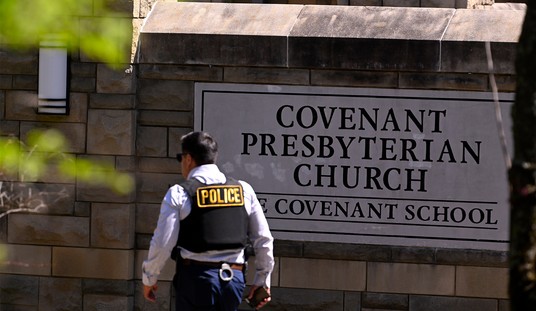In just a few days, the Senate will conduct its annual reading of Washington’s Farewell Address. The tradition began in 1862 and has continued unabated since 1896.
Washington had both James Madison and Alexander Hamilton prepare the letter, and some speculate that the final draft was more Hamilton than Washington, but it has become the symbol of Washington’s political philosophy.
He encouraged Americans to avoid faction as much as possible, maintain a sound economy (including a balanced budget with limited debt), steer clear of “permanent alliances,” and maintain the balance between the North and South.
The United States government has not lived up to those expectations.
Washington as a political force is as silent as his stately obelisk, a sturdy reminder of the American vision but powerless to stop the forces of time.
Even Washington as a man has been lost to time.
He once was regarded as the quintessential American, “First in war, first in peace, and first in the hearts of his countrymen.” No more.
Washington has been reduced to an afterthought in American history, a caricature of the founding generation.
He has recently been described as “sort of a boob,” the “Calvin Klein” of the Founders because of his interest in uniform design, a dishonest glory hound who feigned humility even to his wife, a blundering general, and of course a racist slaveholder.
That is the modern Washington, but that is not the real Washington, the Washington that still matters to Americans today.
Recommended
Washington was a man among men and a man of action in a time that demanded action.
He was a self-reliant frontiersman who braved indescribable hardships as a teenager on surveying missions to the west and as a young officer in the early days of the French and Indian War. Washington understood survival.
Without Washington, the 1755 Battle of the Monongahela would have ended in the annihilation of British forces.
He accepted command of the Continental Army without pay in 1775 and led what was mostly a rag-tag militia for much of the war to victory. He called it “almost a miracle.” The United States do not gain their independence without Washington.
He resigned his commission and refused all political appointments for several years after the end of the war. This was a magnanimous gesture almost unheard of in Western Civilization. Washington was called the American Cincinnatus because of his willingness to eschew power and return to private life. He believed the military should be subordinate to the civil power, and by retiring at the end of the American War for Independence, Washington thought he would set an important precedent.
He came out of retirement only when firmly cajoled and thought becoming president was like going to his execution. Compare that to our modern lionization of the office.
He tolerated dissent and for the most part cautiously implemented executive power. There were hiccups, but that had more to do with his unwavering support for Hamilton than his own political philosophy.
But Washington the statesman cannot be separated from Washington the man.
Washington was a gentleman’s gentleman.
He was the best athlete in Virginia, an excellent conversationalist, and a fine dancer. He was always finely appointed and well groomed.
Washington respected women, including a deep love for his wife Martha, and was an enlightened man who encouraged religious toleration for all religious sects.
He cherished his family and his step-grandson (and adopted son), George Washington Parke Custis, often tagged along as Washington tended to Mount Vernon.
Washington was a true courtier, a man who possessed the essential sprezzatura and formal rules of conduct required from men of his station.
Everyone wanted to be like Washington, and even those who disagreed with his positions never impugned his character.
He was the glue that held the Union together, the American that represented the best of its society, the honest and trustworthy head of state. His leadership secured independence and saved the Union from crumbling.
Washington was the indispensable man, but that man—that gentleman—has been marginalized in modern American culture.
Today, we celebrate professional athletes, charlatans who make a living entertaining others through modern media by acting as someone else, vulgar degenerates whose only claim to fame is shock, and demagogues who have little understanding of the founding principles or traditional American government.
Our modern heroes do not measure up to Washington. Not many men in history can.
But that should serve as a challenge. If modern American men acted more like Washington and less like the modern political class, their paid street thugs, and the clueless academic elite, perhaps we would have a more civil, balanced, and rational polity.
What this world needs is a few more gentlemen, the cream rather than the sludge.
What America needs is Washington, now more than ever.

























Join the conversation as a VIP Member